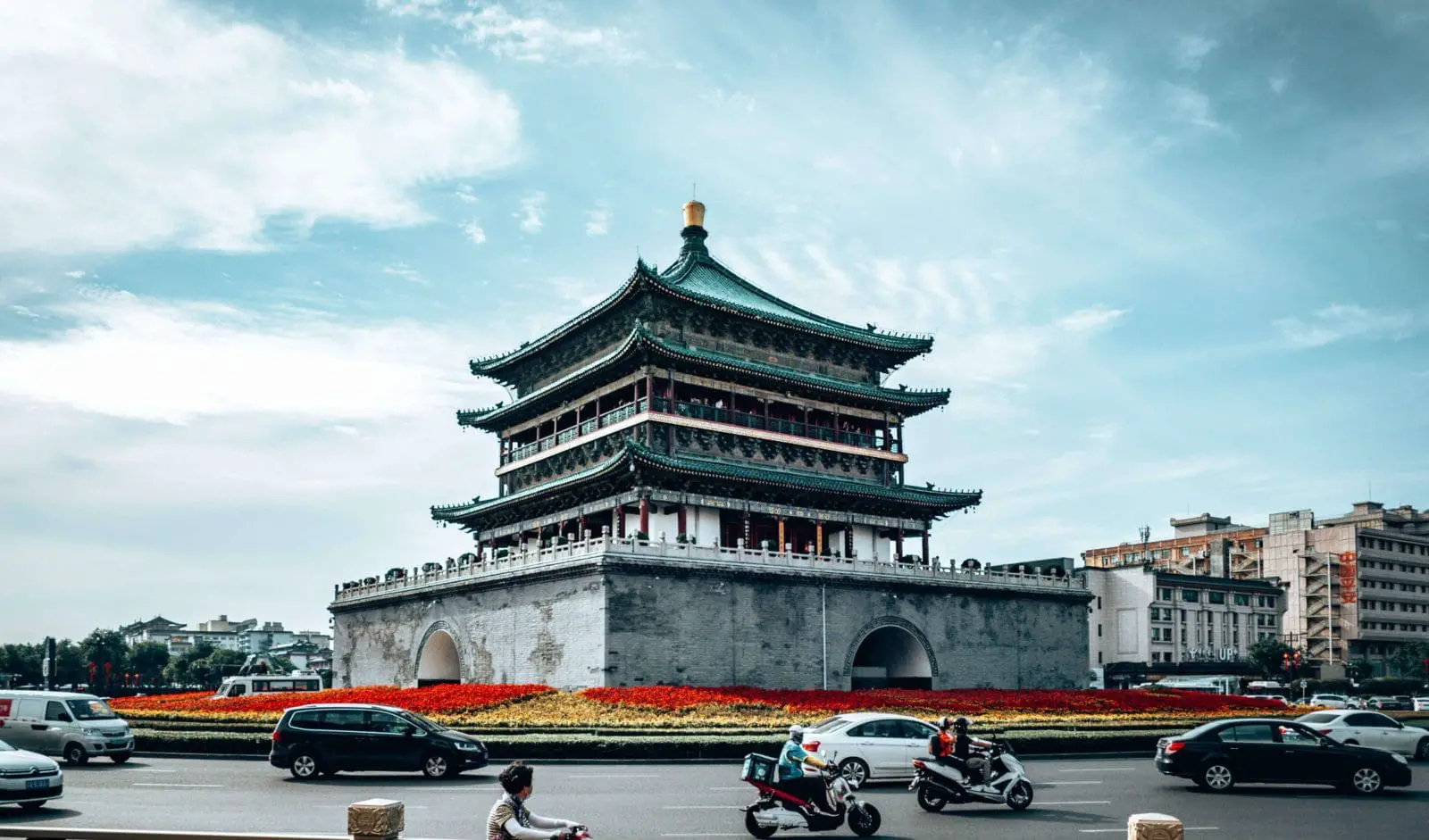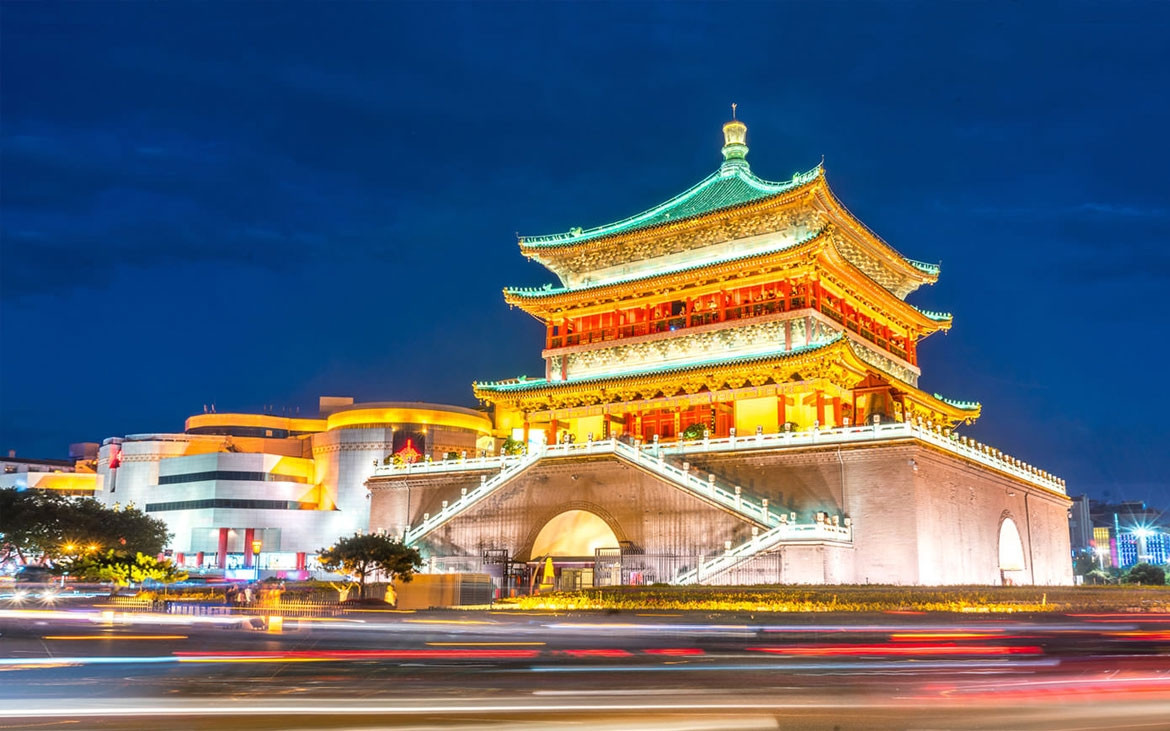
tour del giorno del taoista privato di xi’an chongyang palace e louguantai, Xi’an, the ancient capital of China, is not only famous for its terracotta warriors but also for its rich cultural heritage, particularly in Taoism. For those seeking a deeper understanding of Taoist philosophy and history, a private tour of Chongyang Palace and Louguantai offers a unique and enlightening experience. In this article, we will delve into the significance of these two Taoist sites and what visitors can expect from such a tour.

Chongyang Palace: A Glimpse into Taoist History
Located at the foot of Zhongnan Mountain in the southern suburbs of Xi’an, Chongyang Palace, also known as the “Double Ninth Palace,” holds great historical and cultural significance in Taoism. It was built in the Tang Dynasty (618-907 AD) to honor the Taoist sage Lu Dongbin, one of the Eight Immortals in Chinese mythology.
Must Read=angelladen in der nähe
Historical Significance:
Chongyang Palace served as a center for Taoist rituals, teachings, and meditation practices during ancient times. It was believed to be a place where Taoist adepts gathered to cultivate their spiritual practices and seek enlightenment. The palace’s serene surroundings, nestled amidst lush greenery and towering peaks, provided an ideal environment for introspection and meditation.
Architecture and Attractions:
The architecture of Chongyang Palace reflects traditional Chinese temple design, with elegant pavilions, courtyards, and intricate carvings adorning the buildings. Visitors can explore various halls, shrines, and meditation chambers within the palace complex, each dedicated to different Taoist deities and principles.
Highlights of Chongyang Palace Tour:
- Hall of Three Purities (Sanqing Hall): This hall is dedicated to the Three Pure Ones, the highest deities in Taoism, representing the fundamental principles of the universe. Visitors can admire the ornate altars and statues depicting these revered figures.
- Lu Dongbin’s Pavilion: As the main deity honored at Chongyang Palace, Lu Dongbin’s Pavilion is a focal point of the tour. Here, visitors can learn about the life and teachings of Lu Dongbin, who is revered as a wise and compassionate sage in Taoist tradition.
- Dragon and Tiger Pagodas: These twin pagodas symbolize harmony and balance, with the dragon representing yang (male energy) and the tiger representing yin (female energy). Climbing to the top offers panoramic views of the surrounding landscape and an opportunity for quiet contemplation.
Louguantai: The Birthplace of Taoist Immortality
Located approximately 70 kilometers west of Xi’an, Louguantai is renowned as the birthplace of Taoist immortality and the site where Laozi, the legendary founder of Taoism, is said to have imparted his teachings to his disciples.

Historical Significance:
Louguantai holds a special place in Taoist mythology as the site where Laozi, also known as Lao Tzu, composed the Tao Te Ching, a foundational text of Taoist philosophy. It is believed that Laozi resided in seclusion at Louguantai during the late Spring and Autumn period (771-476 BC), sharing his wisdom with followers and imparting the principles of Taoism.
Natural Beauty and Spiritual Retreat:
Surrounded by tranquil forests, verdant hills, and natural springs, Louguantai offers visitors a peaceful retreat from the hustle and bustle of modern life. The pristine environment and serene atmosphere make it an ideal setting for meditation, reflection, and spiritual practice.
Attractions at Louguantai:
- Laozi’s Cave: The centerpiece of Louguantai is Laozi’s Cave, a sacred grotto where Laozi is said to have resided and composed the Tao Te Ching. Visitors can explore the cave and pay homage to the ancient sage, whose teachings continue to inspire millions around the world.
- Laozi Statue and Temple: A towering statue of Laozi welcomes visitors to Louguantai, serving as a reminder of his enduring legacy and profound influence on Chinese culture. Nearby, the Laozi Temple houses relics, scriptures, and artifacts related to Laozi and Taoist tradition.
- Stone Inscriptions and Steles: Throughout Louguantai, visitors will encounter stone inscriptions, steles, and calligraphy commemorating the teachings of Laozi and the history of Taoism. These ancient artifacts provide insights into the spiritual significance of the site and its role in preserving Taoist heritage.
Private Taoist Tour Experience:
A private tour of Chongyang Palace and Louguantai offers a personalized and immersive experience for visitors interested in Taoist philosophy and culture. Knowledgeable guides provide insights into the history, symbolism, and spiritual significance of each site, allowing participants to deepen their understanding of Taoism and its timeless wisdom.
Benefits of a Private Tour:
- Customized Itinerary: Private tours can be tailored to suit the interests and preferences of individual or group participants, ensuring a fulfilling and memorable experience.
- Expert Guidance: Knowledgeable guides offer informative commentary, answer questions, and provide insights into the cultural and historical context of each site.
- Exclusive Access: Private tours may include access to restricted areas, special ceremonies, or interactions with Taoist practitioners, offering unique opportunities for cultural immersion and spiritual exploration.

FAQ
- What is the Private Taoist Day Tour of Xi’an, focusing on Chongyang Palace and Louguantai?
- The Private Taoist Day Tour offers a personalized exploration of two significant Taoist sites in Xi’an: Chongyang Palace and Louguantai.
- What is the historical significance of Chongyang Palace?
- Chongyang Palace, also known as the “Double Ninth Palace,” holds historical significance as a center for Taoist rituals and teachings during the Tang Dynasty.
- Who was Lu Dongbin, and why is he revered at Chongyang Palace?
- Lu Dongbin is a Taoist sage and one of the Eight Immortals in Chinese mythology. He is honored at Chongyang Palace for his contributions to Taoist philosophy and practice.
- What architectural features can visitors expect to see at Chongyang Palace?
- Visitors can explore traditional Chinese temple architecture, including pavilions, courtyards, and intricately carved decorations.
- What is the main highlight of Louguantai, and why is it significant?
- Louguantai is renowned as the birthplace of Taoist immortality and is believed to be where Laozi, the founder of Taoism, imparted his teachings.
- What natural surroundings characterize Louguantai?
- Louguantai is surrounded by serene forests, hills, and natural springs, creating an ideal environment for meditation and spiritual reflection.
- What can visitors expect to see inside Laozi’s Cave at Louguantai?
- Laozi’s Cave is a sacred grotto where Laozi is said to have resided and composed the Tao Te Ching. Visitors can explore the cave and pay homage to the ancient sage.
- Are there any special ceremonies or rituals included in the Private Taoist Day Tour?
- Depending on the tour package, participants may have the opportunity to witness or participate in Taoist ceremonies conducted by local practitioners.
- How long does the Private Taoist Day Tour typically last?
- The duration of the tour may vary, but it usually lasts a full day, allowing ample time for exploration, contemplation, and cultural immersion.
- Is the Private Taoist Day Tour suitable for individuals with limited mobility?
- While some areas may be accessible to individuals with limited mobility, certain parts of Chongyang Palace and Louguantai may involve stairs or uneven terrain.
- Can visitors purchase souvenirs or religious artifacts at Chongyang Palace or Louguantai?
- Yes, there are usually souvenir shops or vendors selling traditional Taoist items, artwork, and literature at both sites.
- Are there dining options available during the tour?
- Some tour packages may include meals or snacks, while others may provide recommendations for nearby restaurants or eateries.
- Is transportation included in the Private Taoist Day Tour?
- Transportation arrangements may vary depending on the tour package, but options typically include private vehicles, public transportation, or guided walking tours.
- Are English-speaking guides available for non-Chinese-speaking visitors?
- Yes, many tour operators provide English-speaking guides who can offer explanations and assistance throughout the tour.
- Can visitors take photographs or videos during the tour?
- Photography and videography are usually allowed at Chongyang Palace and Louguantai, but visitors should respect any restrictions or guidelines provided by the tour guide.
- Are there restroom facilities available at Chongyang Palace and Louguantai?
- Yes, both sites typically have restroom facilities for visitors’ convenience.
- What clothing and footwear are recommended for the tour?
- Comfortable clothing and sturdy walking shoes are recommended, as visitors may need to navigate uneven terrain and climb stairs at certain locations.
- Is there an age restriction for participating in the Private Taoist Day Tour?
- There is typically no age restriction, but parents or guardians should consider the suitability of the tour for young children based on their interests and endurance.
- Can visitors customize the itinerary of the Private Taoist Day Tour?
- Many tour operators offer customizable itineraries based on visitors’ preferences, interests, and time constraints.
- How can visitors book the Private Taoist Day Tour of Xi’an, focusing on Chongyang Palace and Louguantai?
- Visitors can book the tour through reputable tour operators, travel agencies, or online booking platforms, ensuring they choose a package that meets their needs and preferences.
In conclusion,
a private tour of Chongyang Palace and Louguantai provides a rare opportunity to delve into the rich tapestry of Taoist spirituality and history. From the tranquil surroundings of Chongyang Palace to the sacred caves of Louguantai, visitors are invited to embark on a journey of self-discovery, enlightenment, and inner peace. Whether seeking solace, inspiration, or simply a deeper connection with nature and the divine, this immersive experience offers something truly transformative for the mind, body, and spirit.



